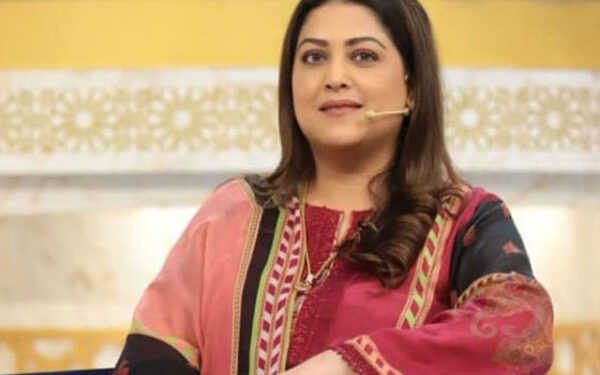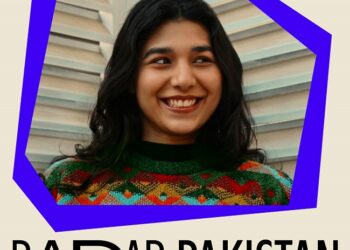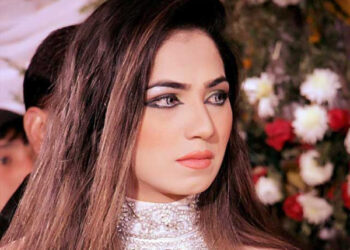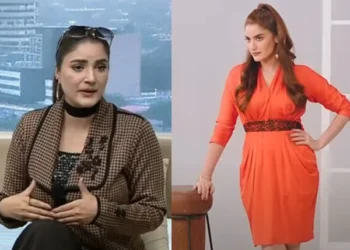Renowned Pakistani television actress Fazeela Qazi has issued a sharp and thoughtful response to controversial remarks made by popular YouTuber Saad-ur-Rehman, widely known as Dikki Bhai. The senior actress took to social media to address Dikki Bhai’s comments, which many in the entertainment industry found disrespectful and dismissive toward the contributions of television actors.
Background: The Controversial Podcast Remarks
During a recent podcast episode that quickly went viral across Pakistani social media, Dikki Bhai made several bold and, according to many, inappropriate statements about TV artists. The YouTuber claimed that many television actors suffer from an “inferiority complex” and lack creativity, as they simply follow directors’ instructions. He went on to suggest that actors do not engage in original work and, therefore, should not be celebrated in the same way as content creators who operate independently on digital platforms.
Dikki Bhai further stirred controversy by refusing to acknowledge legendary actress Bushra Ansari. “I don’t know her,” he said bluntly. “All I know is that she is an actress.” His tone and words sparked backlash, particularly from those within the entertainment and drama industry who view such remarks as disrespectful toward accomplished artists who have spent decades honing their craft.
Fazeela Qazi’s Response: Respect and Constructive Criticism
Fazeela Qazi, a respected name in Pakistan’s drama industry with a career spanning decades, responded to Dikki Bhai’s remarks in a composed yet firm manner. She acknowledged that while there may be some truth to his views about changing trends in media consumption, it was inappropriate to generalize and disrespect television actors.
“I just want to say that not everyone is the same,” she commented on a video of Dikki Bhai’s podcast. “Please be mindful of your language and show respect when discussing others, especially those who have contributed so much to the entertainment industry.”
Her response was widely applauded by fans and colleagues alike, who praised her for taking a dignified stand against blanket criticism and for promoting respectful dialogue between traditional media and new-age digital creators.
The Changing Landscape of Entertainment in Pakistan
Fazeela Qazi also acknowledged a key point in Dikki Bhai’s argument: the evolving nature of content consumption. With the rapid growth of digital platforms such as YouTube, TikTok, and Instagram, many content creators have amassed large followings, often rivaling or surpassing the reach of television celebrities.
“You are right when you say the world is changing, and actors do need to adapt,” Qazi noted. “But that doesn’t mean we dismiss the value of past or present contributions by people in traditional entertainment sectors.”
Her comment strikes a balance—recognizing the importance of adapting to the digital age while defending the legacy and hard work of Pakistan’s veteran TV actors.
Dikki Bhai’s View: YouTubers Versus Traditional Actors
Saad-ur-Rehman, better known as Dikki Bhai, has built a substantial following on YouTube through his comedic skits, parodies, and commentary. In his podcast appearance, he drew a line between the efforts of independent content creators and the structured world of television acting.
He argued that YouTubers work entirely on their own merit—creating, directing, filming, and editing their content without the support of a large production team. In contrast, he claimed, television actors merely follow orders and play out pre-written scripts, which, in his view, reduces their creative value.
“TV is a dying medium,” he stated. “People don’t watch television anymore. If actors want to survive, they need to change their platform and come to digital media.”
The Industry Reacts: Divided Opinions
Dikki Bhai’s remarks have sparked a larger debate within Pakistan’s entertainment industry. Some younger artists and digital influencers agree that the future lies in online platforms and that traditional television actors need to evolve. However, others argue that the skill and dedication required to perform in scripted dramas—often tackling deep social issues—should not be diminished.
Bushra Ansari, though not directly responding to Dikki Bhai, has in the past expressed concerns about how social media promotes fame without the same rigor or depth of talent that TV and film demand. Many industry veterans feel that digital creators should acknowledge the legacy and depth of television acting rather than dismiss it altogether.
The Way Forward: Collaboration Over Conflict
Fazeela Qazi’s response represents a path forward for bridging the gap between digital creators and traditional actors. Rather than fueling animosity, she encourages mutual respect and learning between the two mediums. As she noted, “There’s room for everyone in this changing world of media. Let’s learn from each other rather than tearing each other down.”
This approach highlights the potential for collaboration—where YouTubers, influencers, and television actors can come together to create hybrid content that reaches diverse audiences. With Pakistan’s media landscape shifting rapidly, such unity could pave the way for innovative content and a stronger entertainment industry overall.
Conclusion: Respecting Legacy While Embracing Change
The controversy surrounding Dikki Bhai’s comments has ignited an important conversation about the evolving roles of actors, influencers, and creators in today’s digital-first world. While his words may have been harsh, they have also served as a wake-up call for the television industry to reflect and adapt.
Fazeela Qazi’s dignified response underscores the value of respectful dialogue and the importance of recognizing the contributions of all creatives—whether they work on a television set or behind a smartphone camera.
As Pakistan’s entertainment industry continues to evolve, one thing remains clear: progress will come not through division, but through mutual respect, adaptation, and creative synergy.

























